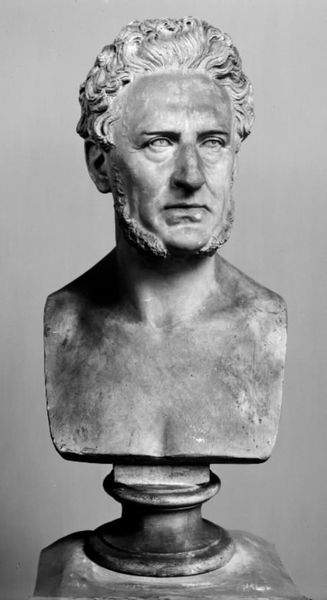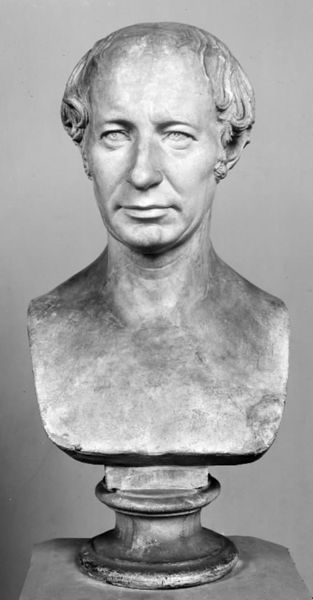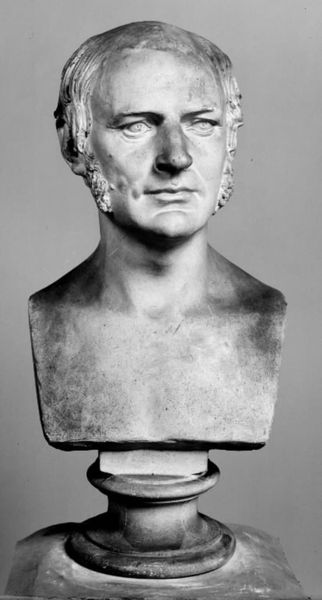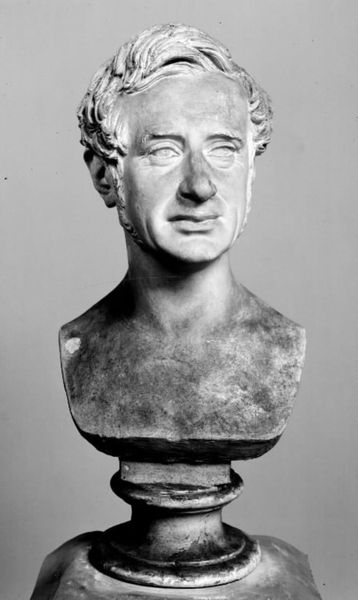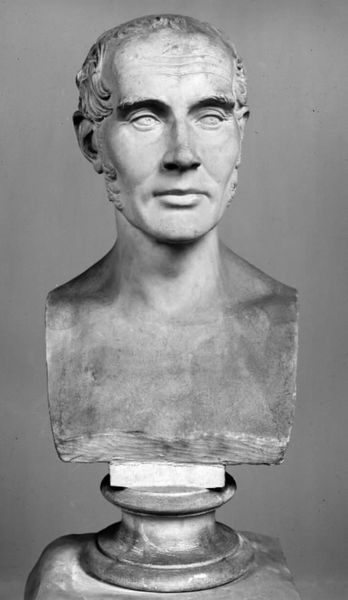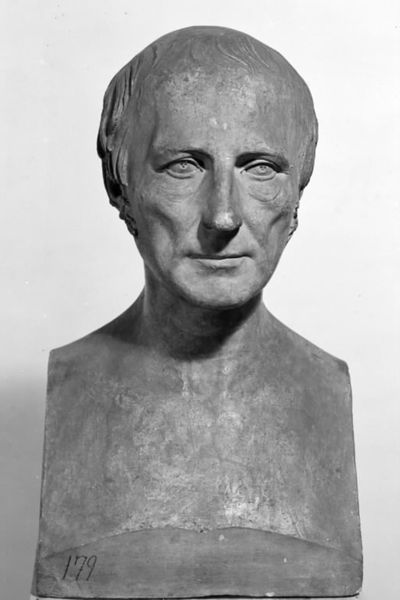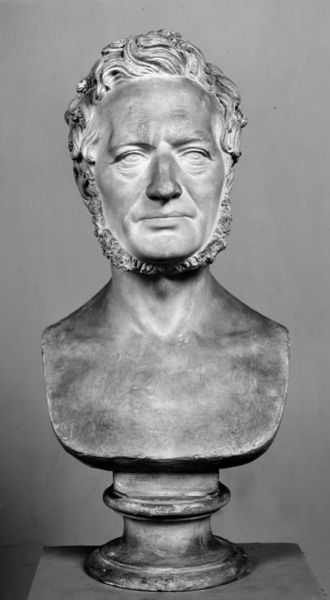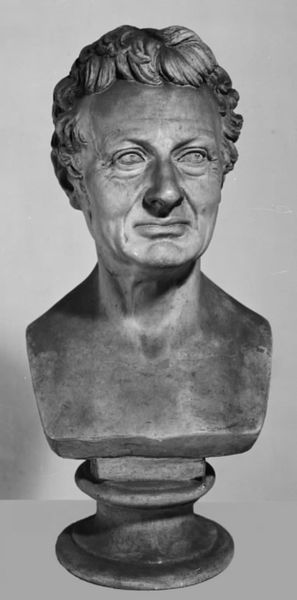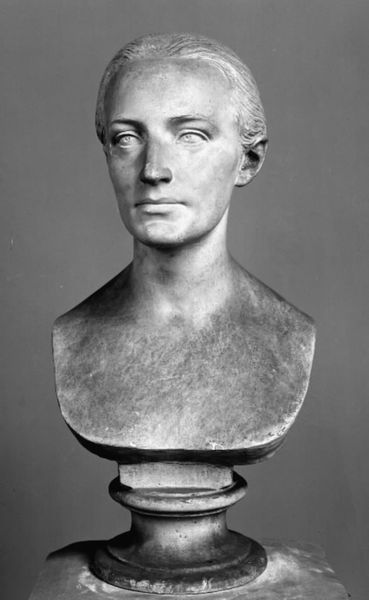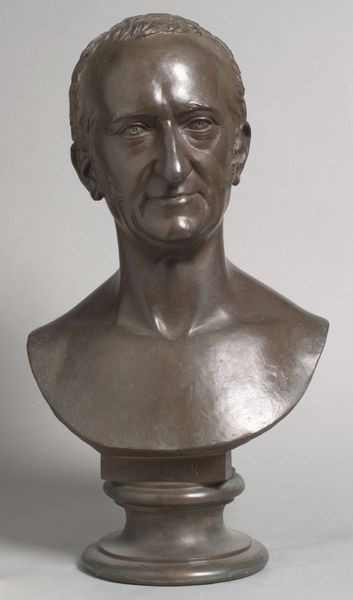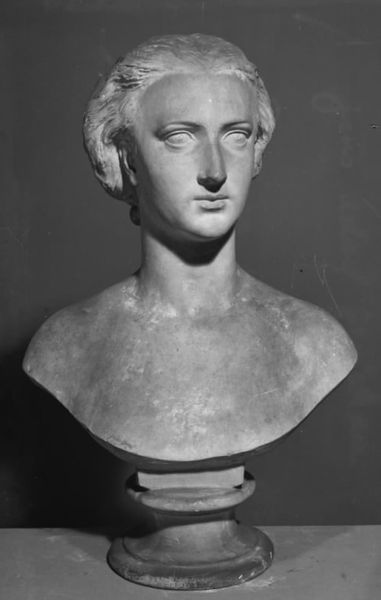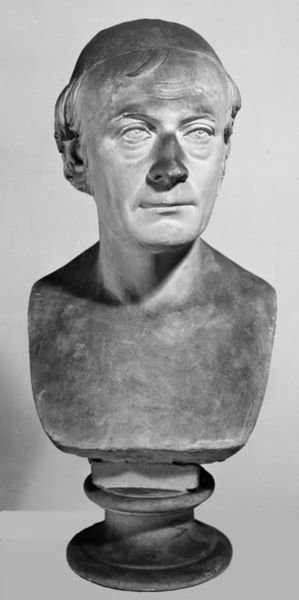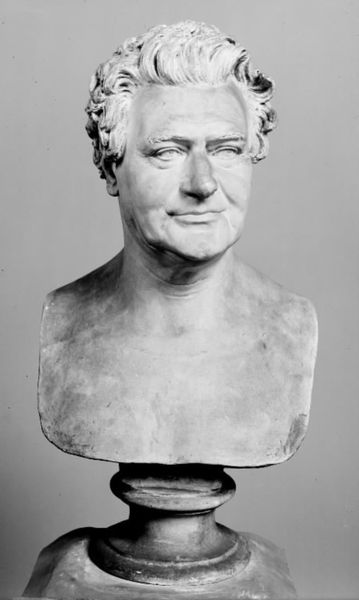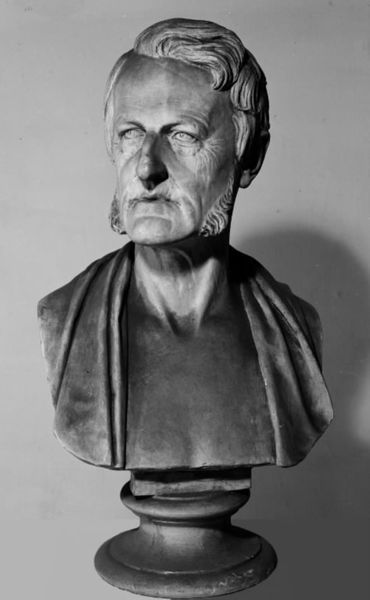
metal, sculpture, marble
#
portrait
#
neoclacissism
#
portrait image
#
metal
#
sculpture
#
sculpture
#
marble
#
statue
Dimensions: 59 cm (height) (Netto)
Editor: This is H.W. Bissen's marble sculpture "Grosserer, etatsråd C.H. Donner" from 1835. It has a stark, neoclassical feel. What are your thoughts? Curator: It's crucial to recognize that portraits of prominent figures like Donner weren't neutral acts of representation. Can you imagine the social context of its creation? It reflects a hierarchical power dynamic. Wealthy merchants like Donner wielded considerable influence. A marble bust like this reinforced their status and legitimized their role in society. Editor: So, it’s more than just a likeness; it’s a statement of power? Curator: Precisely. And we must consider the gaze. Donner looks straight ahead. What does that communicate? Think about who this work was intended to impress and whose gaze it demands. Is this individual actually progressive? Or simply reflecting and protecting a very narrow status quo? Editor: I guess his expression does seem rather unwavering. Were there challenges to this kind of power being presented so plainly? Curator: Yes, absolutely. As neo-classicism, particularly in sculpture, harkened back to democratic and republican forms of ancient Greece and Rome. What message would it convey to Denmark in 1835 to revive classical busts? Was this truly egalitarian? Who truly benefited from this power structure? And whose stories were being told? Editor: It definitely provides a different angle to consider the sculpture. I appreciate how you connected art history with social issues like power and inequality! Curator: Seeing art as a participant in a larger discourse – a conversation – reveals dimensions that purely aesthetic interpretations might miss.
Comments
No comments
Be the first to comment and join the conversation on the ultimate creative platform.
